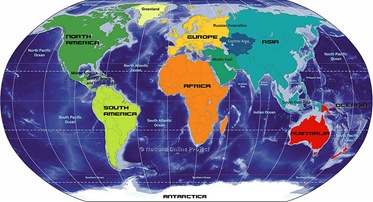Issued Monday by the Canada-Newfoundland Offshore Petroleum Board:
C-NLOPB Announces Commission of Inquiry Terms of Reference
The Canada-Newfoundland and Labrador Offshore Petroleum Board today released the Terms of Reference for the Inquiry into Matters Respecting Helicopter Passenger Safety for Workers in the Newfoundland and Labrador Offshore Area.
On April 16, 2009, the C-NLOPB appointed Hon. Robert Wells Q.C. to head the Commission of Inquiry.
The C-NLOPB has been working to develop the Terms of Reference and put the necessary supports in place for the Commissioner to begin his duties.
The purpose of the Inquiry is to determine what improvements can be made so that the Board can determine that the risks of helicopter transportation of offshore workers is as low as is reasonably practicable in the Newfoundland and Labrador Offshore Area.
The Commissioner’s mandate will be to inquire into, report on and make recommendations in respect of matters relating to the safety of offshore workers in the context of Operators’ accountability for escape, evacuation and rescue procedures while traveling by helicopter over water to installations in the Newfoundland and Labrador Offshore Area, in compliance with occupational health and safety principles and best industry practices.
Specifically, the Commissioner shall inquire into, report on and make recommendations in respect of safety plan requirements for Operators and the role that Operators play in ensuring that their safety plans are maintained by helicopter operators; search and rescue obligations of helicopter operators by way of contractual undertakings or legislative or regulatory requirements; and the role of the C-NLOPB and other regulators in ensuring compliance with legislative requirements in respect of worker safety.
Commissioner Wells stated that the process will provide ample opportunity for the public to express their views in respect of practices which will reduce risks of helicopter transportation in the offshore area.
“The public will be able to make written submissions and there will be formal and informal hearings,” said Commissioner Wells. “There will also be a need to consult other offshore safety regulators in other jurisdictions in respect of best practices and obtain the services of independent specialists with expertise in areas relevant to the Inquiry.”
The Commission of Inquiry offices are located at Tara Place, 31 Peet Street, Suite 213, St. John’s, Newfoundland and Labrador, A1B 3W8. It is expected that the offices will be fully functional and staffed in the coming weeks.
-30-
Terms of reference below. Media Contact: Hon. Robert Wells QC. Inquiry Commissioner (709) 753-7000 or (709) 579-0469 e-mail: robertwells@nl.rogers.com or Sean Kelly APR, FCPRS Manager of Public Relations C-NLOPB (709) 778-1219 (709) 689-0713 (cell) e-mail: skelly@cnlopb.nl.ca------------------------
Commissioner’s Terms of Reference for the Inquiry into matter respecting helicopter passenger safety for workers in the Newfoundland and Labrador Offshore Area
WHEREAS the Canada-Newfoundland and Labrador Offshore Petroleum Board (C NLOPB) was established by the Government of Newfoundland and Labrador and the Government of Canada as a joint, independent, arms-length regulator of exploration, development, and production of oil and gas resources in the Newfoundland and Labrador Offshore Area;
AND WHEREAS the C-NLOPB has a mandate to interpret and apply the provisions of the Atlantic Accord and the Atlantic Accord Implementation Acts to all activities of Operators in the Newfoundland and Labrador Offshore Area and to oversee Operator compliance with those statutory provisions;
AND WHEREAS the C-NLOPB is required by legislation, before issuing an authorization for work or activity, to consider the safety of the work or activity by reviewing the system as a whole and its components, including its structures, facilities, equipment, operating procedures and personnel;
AND WHEREAS the C-NLOPB oversees the safety of Offshore Activities by review and approval of an Operator’s plans and implementation to determine that risks have been reduced to a level that is as low as reasonably practicable;
AND WHEREAS the crash of Cougar Helicopter Sikorsky S92-A flight 491 was a serious accident in the Newfoundland and Labrador Offshore Area;
AND WHEREAS pursuant to the Accord Implementation Acts an inquiry into a serious accident is mandatory, and the C-NLOPB has determined that an inquiry into safety matters respecting transport by helicopter to the Newfoundland and Labrador Offshore Area is essential for the C-NLOPB in carrying out its mandate as it relates to overseeing safety in the Newfoundland and Labrador Offshore Area;
NOW THEREFORE the C-NLOPB, pursuant to s. 165 of the Federal Accord Act (s. 161 of the Provincial Act), directs that an inquiry be made into safety matters respecting transport by helicopter to the Newfoundland and Labrador Offshore Area the terms of reference of which are set out herein;
1. Establishment of the Inquiry
There is established a commission of inquiry on matters respecting worker safety associated with helicopter transportation in the Newfoundland and Labrador Offshore Area that are within the jurisdiction of the C-NLOPB. The Commissioner shall be the Honourable Robert Wells, Q.C.
2. Definitions
In these Terms of Reference,
“Accord Acts” means the Canada-Newfoundland Atlantic Accord Implementation Act and the Canada-Newfoundland and Labrador Atlantic Accord Implementation Newfoundland and Labrador Act;
“Board” means The Canada-Newfoundland and Labrador Offshore Petroleum Board;
“Commissioner” means the individual appointed pursuant to para. 165 of the Canada-Newfoundland Atlantic Accord Implementation Act and section 161 of the Canada-Newfoundland and Labrador Atlantic Accord Implementation Newfoundland and Labrador Act;
“Newfoundland and Labrador Offshore Area” means the offshore area as defined in the Accord Acts.
“Operator” means a company which has been issued an authorization pursuant to the Accord Acts to conduct work or activity within the Newfoundland and Labrador Offshore Area.
“Participant” means a person who makes an oral presentation or files a written submission to the Commissioner pursuant to the Rules of Procedure and Practice;
“Rules of Procedure and Practice” means the procedures as may be implemented by the Commissioner;
“Secretariat” means the Commissioner’s support staff.
3. Purpose
The purpose of this Inquiry is to determine what improvements can be made so that the Board can determine that the risks of helicopter transportation of offshore workers is as low as is reasonably practicable in the Newfoundland and Labrador Offshore Area.
4. General Mandate
The Commissioner’s mandate will be to inquire into, report on and make recommendations in respect of matters relating to the safety of offshore workers in the context of Operators’ accountability for escape, evacuation and rescue procedures while traveling by helicopter over water to installations in the Newfoundland and Labrador Offshore Area, in compliance with occupational health and safety principles and best industry practices.
5. Specific Mandate
Specifically the Commissioner shall inquire into, report on, and make recommendations in respect of:
(a) safety plan requirements for Operators and the role that Operators play in ensuring that their safety plans, as represented to and approved by the Board are maintained by helicopter operators,
(b) search and rescue obligations of helicopter operators by way of contractual undertakings or legislative or regulatory requirements,
(c) the role of the C-NLOPB and other regulators in ensuring compliance with legislative requirements in respect of worker safety.
6. Limitation
The Commissioner’s mandate does not include an examination of any issues related to the airworthiness of aircraft, training of flight crew, or flight procedures or any other matters which are included in the Transportation Safety Board of Canada Investigation into Cougar Helicopter Sikorsky S92-A Crash except to the extent specifically described in paragraph 5 hereof.
The Commissioner’s mandate does not include an examination of the provision by the Government of Canada (Department of National Defence) of Search and Rescue facilities for all marine incidents and the location of such facilities within the Province of Newfoundland and Labrador
7. Powers of the Commissioner
Consistent with s. 165(2) of the Federal Accord Act and s. 161 (2) of Provincial Accord Act, the Commissioner shall be vested with the powers conferred by the Inquiries Act, R.S., 1985, c. I-11 and the Public Inquiries Act, 2006, SNL2006 c. P-38.1.
8. Inquiry Methodology
The Commissioner shall design, make known and enforce rules, practices and procedures for the proper conduct of the Inquiry and where necessary may amend such rules, practices and procedure from time to time.
Phase I – (Parts A and B to be undertaken concurrently)
A. The Commissioner shall solicit the views of the public in respect of practices which will reduce the risks of helicopter transportation in the offshore area.
Mechanisms by which this phase of the inquiry is to be conducted made include:
(i) interviews and surveys,
(ii) calling for written submission, and
(iii) formal or informal hearings as the Commissioner deems appropriate.
B. The Commissioner shall gather information in respect of the specifically identified mandate issues described in paragraph 5 hereof.
Mechanisms by which this phase of the inquiry is to be conducted may include:
(i) research studies,
(ii) consultation with other offshore safety regulators in other jurisdictions in respect of best practices,
(iii) inspections and investigations,
(iv) calling for written submissions, and
(v) informal or formal hearings as the Commissioner deems appropriate.
- Any information gathered by the Commissioner during Phase I of the Inquiry which in his view should be addressed by the C-NLOPB or any other regulatory agency with urgency shall be brought to the attention of the C-NLOPB at a time and in a format the Commissioner deems appropriate.
- To the extent that it reduces duplication of efforts and facilitates expeditious consideration of issues raised, the Commissioner shall maintain regular and frequent communication with the Transportation Safety Board of Canada Investigation into Cougar Helicopter Sikorsky S92-A Crash.
The Commissioner may retain and as needed request the services of independent specialists whose function would be to provide information on and interpret information and issues relevant to the Inquiry. Independent specialists retained by the Commissioner may be requested by the Commissioner to appear before the Commissioner as experts.
The Commissioner shall provide a Report to the Board on completion of Phase I, which Report shall be provided by March 31, 2010 unless an extension should become necessary.
Phase II Upon completion of the Transportation Safety Board of Canada Investigation into Cougar Helicopter Sikorsky S92-A Crash, the Commissioner shall undertake a review of the Report therefrom and particularly the findings and shall advise the C-NLOPB:
(a) which findings should result in actions being recommended to be undertaken by C-NLOPB and how they should be implemented,
(b) which findings should result in actions being recommended to be undertaken by other legislative or regulatory agencies.
The Commissioner may retain and as needed request the services of independent specialists whose function would be to provide information on and interpret information and issues relevant to the Inquiry.
Independent specialists retained by the Commissioner may be requested by the Commissioner to appear before the Commissioner as experts.
Participation by Parties with Professional and Commercial Interests
The Commissioner shall provide criteria for Standing for those with professional and commercial interest in helicopter transport to the Newfoundland and Labrador Offshore Area.
The Commissioner shall also provide procedures by which Standing will be granted.
Parties with Standing shall provide the Commissioner with written submissions outlining the issues within the Inquiry Mandate upon which such parties have an interest. The Commissioner may request from such parties further submissions either by way of written reports or oral presentations.
The Commissioner may provide for sessions in which evidence is presented to the Commissioner and where appropriate may allow for cross-examination of such evidence.
Scheduling
The Commissioner will provide notice of the detailed schedule and announce specific dates, locations and topics respecting the public sessions, if any, of the Inquiry. This notice will be issued a minimum of thirty (30) days prior to the start of the sessions and shall identify the specific issues on which information is being sought. The Commissioner will hold sessions at such locations, within the province of Newfoundland and Labrador, and at such times as the Commissioner deems appropriate.
9. Consultation by Commissioner with the C-NLOPB
The Commissioner, the Secretariat, or both may consult the Board for the purposes of clarifying any matters respecting the Terms of Reference, the Inquiry process and any matters relating to support of the Inquiry.
The Commissioner may consult the Board to provide information in relation to matters within the Inquiry Mandate.
The Commissioner or Secretariat shall not consult the Board for the purpose of discussing any substantive matters respecting purpose of the Inquiry and the recommendations to be made.
Notwithstanding the above provision the Commissioner shall bring to the attention of the Board matters that come to the Commissioners attention during the Inquiry that are of an immediate nature relating to any safety issues within the jurisdiction of the Board.
10. Support for Commissioner
The Board shall provide funding to the Commissioner so as to fulfill the mandate and effectively achieve the objectives of the Inquiry.
The Commissioner shall occupy such space for offices and hearing rooms and employ staff as may be necessary in consultation with the Board and in accordance with Board policy and practices.
The Commissioner may engage professional services (public relations, technology, website) so as to fulfill the mandate and effectively achieve the objectives of the Inquiry.
The Commissioner shall not express any finding or recommendations regarding criminal or civil responsibility of any person, body or organization.
-srbp-



